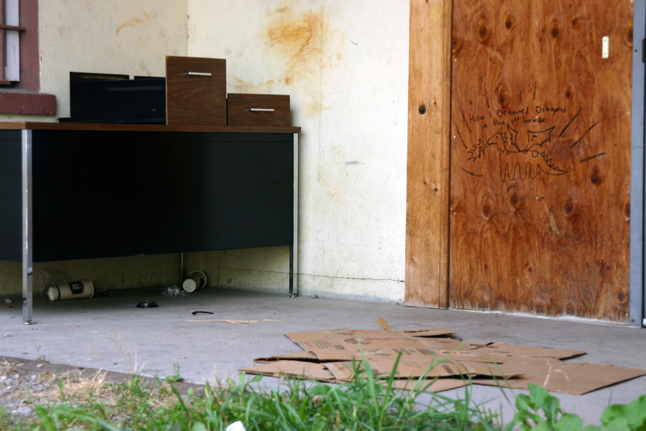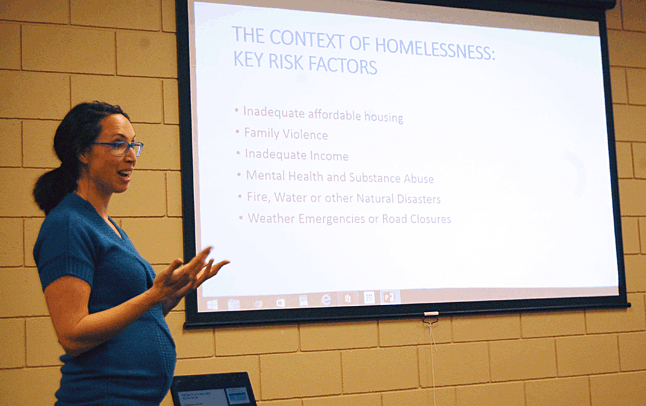By David F. Rooney
Beginning in 2005 when the provincial government gave the go-ahead to develop Revelstoke Mountain Resort and work began on Unit 5 at the Revelstoke Dam, affordable housing has been a major issue in Revelstoke.
After then-premier Gordon Campbell arrived in town in 2005 to sign the resort’s Master Development Agreement residents and visitors alike noticed a steady rise in rents and house prices. It got so bad that the dollar figures attached to real estate here scared off many nurses, teachers, Mounties and civil servants considering moves to Revelstoke. There were then, as now, a number of destitute men and women who were sleeping rough for much of the year. In winter they’d either leave town, sleep on a friend’s couch, or commit a petty crime so they would get tossed in a nice warm jail with three squares a day.
There were numerous public meetings and discussions as different individuals and potential stakeholder groups sought to not just create a local housing community but the priorities it would establish. Would it seek ways to create housing that help attract and retain middle- and working-class families? Or would it first help the unknown numbers of impoverished, malnourished and sometimes mentally ill street people in Revelstoke?
This was all before the global economy tanked in 2008, but it was clear that those men and women who regarded Revelstoke’s need to attract or retain hard-working people as top priority had gained the upper hand.
While there was talk about a housing project for people suffering from mental illness and transitional housing for women and children who fled violent spouses, no one knew how many might benefit from it. Nor did anyone know how to finance and set up an emergency housing facility. And, finally, there was some amorphous fear of an if-you-build-it-they-will-come scenario. Consequently any organized effort to create housing for them was put on the backburner.
But it was far from dead.
A Community Housing Society was eventually created and City Council identified some vacant land at the junction of Oscar Street and Powerhouse Road as the future home of whatever affordable housing the society decided on.
It didn’t take long. After a period of internal bickering the society used a $250,000 grant BC Hydro had given it to help build a duplex on Oscar. The two units have three-bedrooms each and are quite nice. But at $1,200 rent apiece they can hardly be regarded as affordable.
The society pushed ahead and applied for a major grant from the Columbia Basin Trust and BC Housing to build a major, 12-unit townhouse project. The project’s six single units will rent for $550 a month and the six two-bedroom units will go for $750 a month. This could have been started last year but was stalled — some say deliberately — at City Hall.
The election of a new mayor and council the bureaucratic holdups for this project appear to have vanished and construction is expected to begin next month.
Meanwhile, Housing Society directors, staff at Community Connections, the Women’s Shelter, the RCMP, RAOP and Queen Victoria Hospital were still thinking and quietly discussing ways what form an emergency shelter might take.
It all began to come to a head during the spring of 2014 when the Housing Society contracted Nicole Fricot to study the homeless situation, explore the ways other communities have successfully dealt with it, and make recommendations for a local emergency housing project.
Two weeks ago Fricot delivered. Here are some pertinent excerpts from her study:
“BC Housing Data indicated that since March 1, 2009, 282 individuals contacting The Community Connections Housing Outreach Services have reported some level of homeless status (this includes at risk of homelessness): an average of 56 individuals a year.
“Current community resources available to homeless individuals and families in Revelstoke include The Emergency Shelter Fund, The Housing Outreach Program, The Revelstoke Women’s Shelter, Moberly Manor, Monashee Court, Mount Begbie Manor, Police-based Victim Services and the local church community. There is currently no Emergency Shelter facility available in Revelstoke.
“Current strategies individuals and families are employing to combat homelessness include couch surfing, camping, living in the woods, exchanging sex for shelter, living on the street, living in condemned or inadequate shared accommodations, requesting incarceration, leaving town, seeking assistance from churches or staying in motels.
“This study determined that while an Emergency Shelter may provide homeless individuals with temporary shelter and support, development of a stand-alone homeless shelter without the development of additional supportive housing options would do very little to solve the issues of chronic and long term homelessness in Revelstoke. As such, the study recommends that the Revelstoke Community Housing Society develop a joint facility that combines both an emergency shelter and supportive housing options. Ideally such a facility would accommodate a 3-unit, low-barrier emergency shelter as one component of a larger 14- 16-unit semi-independent supportive housing facility. Fricot said it might be possible to purchase an existing motel in Revelstoke and use it as the physical framework for a versatile shelter to be managed by Community Connections.
“As might be expected, securing the financial support to fund a joint emergency shelter and supportive housing facility will be the biggest challenge,” Fricot said in her study. “Such a project would require a broad partnership of local community agencies along with BC Housing, the City of Revelstoke, the Real Estate Foundation of BC, Columbia Basin Trust and the local private sector.”
Please click here to access Nicole Fricot’s Emergency Shelter Feasibility Study in PDF format.
Please click here to read a previous story about this issue.



